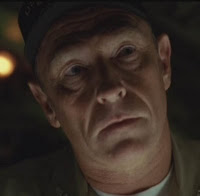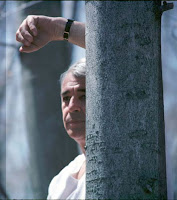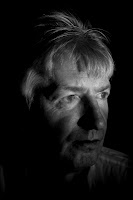Types of Lighting
Lighting must be carefully considered when filming as different lighting can create different atmospheres, as shown in the following examples…
Back Lighting
Light source is placed behind the subject
Looks like a silhouette
It adds a sense of mystery or wonder.
Shadows surrounding the subject add to the mystery
Can create fear and terror of the unknown.
Often used in horror films to conceal the villain.
Under Lighting
 Light source is under the subject
Light source is under the subjectCreates shadows in the subject, adding mystery
Shades of light and dark are added to the subject
Full features of subject cannot be properly seen
Gives a “ghostly” feel
Often used in horror films to create unease
Makes the subject appear domineering
Top Lighting
 Light source is above subject
Light source is above subjectFace is let well, as are the surroundings
Used to create realistic settings
Looks like “everyday” light
Naturalistic feeling.
Used in TV soaps regularly.
High Key Lighting

Overall bright light is used
The overall scene appears very bright
Clearly shows the subject
No shadows in the background
Can add a clinical feel to a scene, like in a hospital
Used to highlight the subject clearly
Low Key Lighting

Shades of light and dark are created
Adds a sense of mystery
Conceals the full features of the subject
Used regularly in films such as the Harry Potter series
What is happening on screen is not shown completely
Keeps the viewers “guessing”
Hope this helps.
Stef




Thanks Stef. We can put more detailed lighting in our storyboard. That will help us when we start filming.
ReplyDelete